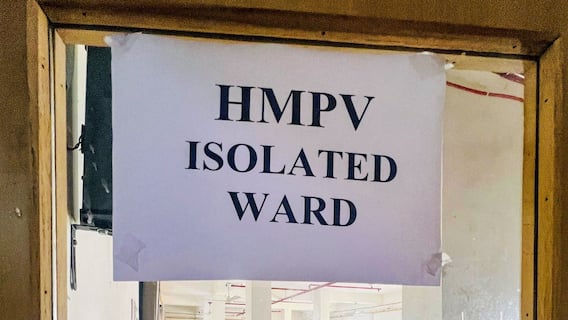In Project Cheetah's 2nd Year, Govt Will Import Animals That Don't Develop Thick Winter Coats: Project Head
Head of Project Cheetah said India could import cheetahs that do not develop any kind of winter coats, which is the main cause of severe infections in some Cheetahs relocated from Africa to India.

Head of Project Cheetah SP Yadav said that India is planning to import Cheetahs that do not develop any kind of thicker winter coats, which is the main cause of severe infections in some Cheetahs and the death of three of them who were relocated from Africa to India, according to the head of the reintroduction project, reported news agency PTI. In an interview with the new agency, Additional Director General of Forests at the Environment Ministry, SP Yadav also said the officials will ensure special attention to the breeding of all these animals in the second year of the project.
VIDEO | "First thing that comes to my mind is the breeding of cheetahs. Cubs born on Indian soil will have much better chances to adapt and survive in Indian situations. Once the breeding takes place, we will understand how the population will behave in our country," says Cheetah… pic.twitter.com/O2uSCII4dh
— Press Trust of India (@PTI_News) September 16, 2023
Prime Minister Narendra Modi inaugurated Project Cheetah in India last year by releasing a group of big cats brought from Namibia into an enclosure at Madhya Pradesh's Kuno National Park on September 17. And Project Cheetah marks its one-year anniversary on Sunday.
Yadav was quoted as saying by PTI: "Some Cheetahs did not develop winter coats and remained infection-free. They are better suited to Indian conditions. Therefore, in our next Cheetah import, we will be very careful in animal selection. We will prefer animals that either do not develop winter coats or develop thinner ones.”
He further said that the radio collars that Cheetahs were made to wear were not the cause of any infections. However, he added that authorities will now replace these collars with new ones from the same South African manufacturer.
Yadav said the winter coat, combined with high humidity and temperatures, caused itching, prompting the animals to scratch their necks on tree trunks or the ground. This led to bruises and exposed skin, where flies laid their eggs, resulting in maggot infestations and, ultimately, bacterial infections and septicemia, leading to death.
He further informed, "The site preparation at the Gandhi Sagar Wildlife Sanctuary is going on in full swing, I'm expecting that it will be completed by the end of November or December.”
He was also quoted as saying: “Once we get the report of completion, we'll go to the site, we'll evaluate it from all preparation points of view. And after December, we'll take a call on bringing Cheetahs.”
Next Batch Of Cheetahs From South Africa
Meanwhile, Yadav, who is also the chief of the National Tiger Conservation Authority, said that the next batch of cheetahs will be imported from South Africa and introduced into Madhya Pradesh's Gandhi Sagar Wildlife Sanctuary, by the end of the year.
He said, "It's mentioned in the Cheetah Action Plan that Kuno has a carrying capacity of about 20 cheetahs. Right now, there are 15 Cheetahs including a cub, and when we will bring the next batch of Cheetahs in the country, it will be at some other place”, as quoted by PTI.
Yadav also added that officials are busy preparing two such sites in Madhya Pradesh, one is the Gandhi Sagar Sanctuary, and the other is Nauradehi.
Cheetahs Display Natural Hunting Skills
Amid this, Yadav said officials observed a successful natural hinting behaviour amongst Cheetahs in the forests during the first year of the project.
He was quoted as saying by PTI: "They have demonstrated great skill in hunting, protecting their kills, and adapting to the environment. These indications are extremely encouraging, and I believe we have accomplished numerous milestones within just one year of completing Project Cheetah.”
Meanwhile, Cheetah Project head SP Yadav said, "First thing that comes to my mind is the breeding of cheetahs. Cubs born on Indian soil will have much better chances to adapt and survive in Indian situations. Once the breeding takes place, we will understand how the population will behave in our country."
He said special attention will be paid to the breeding of Cheetahs during the second year of the ongoing project. He also said, “If we can expect more litter, the cubs born on Indian soil can better adapt to Indian situations. Once the breeding takes place, we will understand how the population will behave in our country. So, the main thing next year will be more cubs on the soil of Bharat."
Trending News
Top Headlines






































